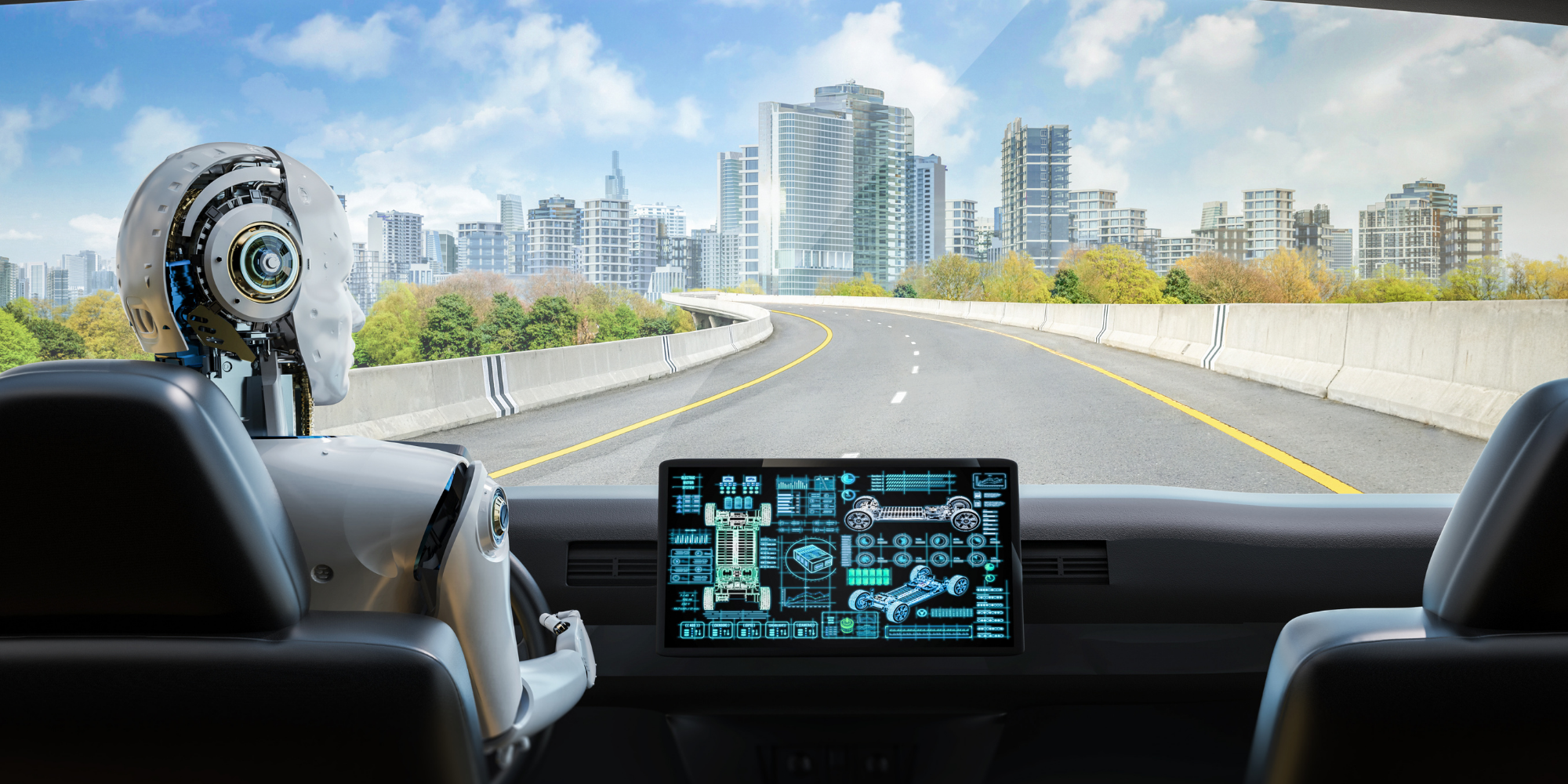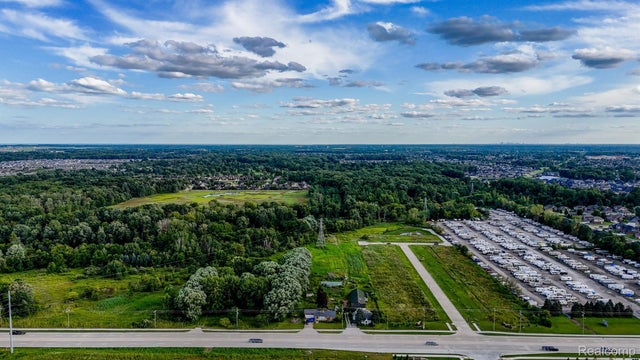Imagine cruising down I-75 on your morning commute, but instead of white-knuckling the wheel, you’re sipping coffee and helping your kid review a homework assignment, all while your SUV handles the driving. It sounds like science fiction, but General Motors has officially announced plans to make this a reality by 2028. In a city like Detroit, where the automobile is king, GM’s new “eyes-off” driving technology is more than just a headline, it’s a glimpse into a future that could reshape how Metro Detroiters drive, live, and even choose their homes. This conversational yet informative deep dive breaks down GM’s big news on hands-free, eyes-off driving and why it matters to families and savvy locals here in the Motor City.

GM’s New Chapter: Marrying Detroit’s Car Legacy with High-Tech AI
General Motors is framing this as a new chapter in its over century-long story of building cars. The automaker isn’t just making vehicles anymore, it’s crafting smart, software-defined companions on wheels that learn and improve over time. CEO Mary Barra highlighted that the company is drawing from its heritage of engineering and manufacturing expertise while doing something entirely new: making a vehicle that can understand you, adapt to your needs, and get better as it goes.
For Metro Detroit, this evolution is a point of pride. The region that put the world on wheels is now aiming to put a brain behind the wheel. Barra’s message is essentially that a car is no longer just a mode of transportation, but a technology platform – an intelligent assistant you travel inside.
At a recent “GM Forward” technology showcase in New York, Barra and her team unveiled several advancements that together paint a picture of the car of the future. From eyes-off autonomous driving to conversational AI assistants, and from supercharged in-vehicle computers to smart energy systems for your home, GM is combining its manufacturing muscle with cutting-edge software and AI. Let’s break down the key pieces of this announcement, and add a dose of local insight on what it could mean for our daily lives in Metro Detroit.
For added context on GM’s recent strategy shifts, here’s our breakdown of the Orion Plant update.
The Road to Hands-Free, Eyes-Off Driving
The headline-grabber is GM’s plan to roll out an “eyes-off” driving capability by 2028, debuting on the all-electric Cadillac Escalade IQ SUV. If you’re familiar with GM’s Super Cruise feature (available on many Cadillacs and other models today), you know it already allows hands-free driving on certain highways. The catch has been that you must keep your eyes on the road, as the system monitors driver attention. The new system takes it a step further – it’s designed to let drivers safely take both hands off the wheel and eyes off the road under specific conditions. In other words, on approved stretches of highway, you could actually watch a video or read a book while the car does the work.
How does it work? First, you’ll know it’s active by the turquoise lighting that will illuminate the dashboard and even the exterior mirrors when the system is engaged. That’s GM’s way of telling you (and even other drivers nearby) that the car is in self-driving mode and you can relax. When you see the dash glow turquoise, it’s the vehicle’s polite way of saying “I got this”. Of course, this will only happen on pre-mapped, carefully vetted highways at first, and GM has already mapped over 600,000 miles of roads in North America for its current Super Cruise system, so there’s a hefty base to build on.
Under the hood, the eyes-off capability is enabled by a combination of sensors and AI smarts. Unlike some competitors that rely solely on cameras, GM is going all-in with a mix of lidar, radar and cameras for 360-degree sensing. This redundancy, known as sensor fusion, means the Escalade IQ will merge data from laser scanners, radar waves, and visual cameras to create a highly accurate picture of its surroundings. So whether it’s a rainy Michigan morning or a dark winter evening, the vehicle isn’t “driving blind.” The sensor data feeds into advanced software models trained on both real-world driving (hundreds of millions of miles’ worth) and countless simulated scenarios to cover the oddball situations that rarely happen in real life. In plain English: GM has taught the system using everything from everyday traffic jams on I-94 to surprise scenarios like a deer darting onto Telegraph Road.
To appreciate the significance, consider the safety track record of the tech so far. Since 2017 when Super Cruise launched, GM’s cars have logged over 700 million miles of hands-free driving without a single reported crash attributed to the system. That’s like driving every mile of every Metro Detroit freeway thousands of times over, accident-free. Now GM is bolstering that foundation with experience from its Cruise division, the team that had been running self-driving Chevy Bolt robo-taxis. Before GM folded that effort into its mainstream work, Cruise notched 5 million miles of fully driverless rides on city streets. All those learnings are being fed into GM’s new personal vehicle system. The result, they hope, is an “eyes-off” autopilot you can trust on the highway.
Figure: The Cadillac Escalade IQ’s side mirror emits a distinctive turquoise glow when the vehicle’s eyes-off driving mode is active, indicating to the driver (and nearby motorists) that the SUV is handling the driving autonomously.
GM is careful to say this will start on highways only, and in 2028, meaning it’s not an overnight change. There are also regulatory hurdles to navigate (not every state law today would technically allow you to watch a movie while driving, for instance). But the company’s message is clear: they’re confident they can deliver a safe, Level 3 autonomous driving system (in industry terms) at scale. One GM executive hinted that this incremental approach – expanding the system’s abilities bit by bit, is the only way to build trust and roll out self-driving tech safely. It likely won’t be a sudden jump to robo-taxis everywhere, but rather a feature that first makes your daily commute from the suburbs to downtown feel a lot less draining.

Conversational AI: Chatting with Your Car Like It’s a Friend
If you’ve ever fought with a clunky voice-command system in a car, GM’s next announcement will sound like a dream. Starting as soon as next year, GM vehicles will begin to include conversational AI based on Google’s new Gemini assistant. This isn’t the old-school, robotic GPS voice that only understands specific phrases, it’s an AI you can talk to in natural language, almost like chatting with a passenger. Think of it as having Google Assistant or Siri’s smarter cousin integrated directly into your dashboard, but supercharged for driving needs.
What can this in-car AI do? For starters, you could ask it for restaurant recommendations while driving through an unfamiliar part of town and it will suggest options (and even help book a table). You might dictate a text or email by just talking normally, and the AI will draft and send it. If you mention that you need to pick up dry cleaning by 6 PM, the assistant could proactively reroute you if there’s a traffic jam on your usual path. GM specifically notes that with Google Gemini, drivers will be able to draft messages or plan routes with contextual requests, like “Find a charging stop near a good coffee shop on my way home”, and get smart suggestions on the fly.
Importantly for us in Metro Detroit, where driving is a way of life, this kind of AI could make daily errands and road trips a lot easier. Have kids in the back asking “Are we there yet?” on the way up north? You could ask the car to tell a knock-knock joke or play a trivia game to keep them entertained. Car acting funny? You might soon be able to ask, “Hey car, do I need an oil change or tire rotation?” and get a helpful answer drawn from the vehicle’s own sensor data and maintenance history.
GM isn’t stopping at Google’s assistant. The plan is to roll out a custom GM AI assistant in the following years, one that uses OnStar connectivity and your vehicle’s data to become even more personalized. With your permission, this AI could learn your preferences and routines. Imagine a vehicle that knows you leave for work at 7:30 AM and automatically pre-warms itself on a cold January morning, or one that reminds you “Today’s your anniversary, shall I book your favorite restaurant?” It might sound far-fetched, but GM is literally building toward this kind of experience. They’ve hinted the AI could help explain new features (great for those confusing high-tech dashboard options), proactively spot maintenance issues, or recommend activities based on your past trips.
From a local standpoint, this is also about keeping Detroit on the tech map. Sure, Silicon Valley has Google and Apple working on car software, but here in the Motor City we have GM developing its own automotive AI. It’s a melding of Detroit’s automotive know-how with digital innovation, and it’s happening in our backyard. For families, it means future car rides might feel a bit more like having a helpful co-pilot along, one who knows the best route to avoid that I-696 construction or where to find a decent playground with coffee nearby, all without you having to lift a finger from the wheel.
A Supercomputer Under the Hood: GM’s Next-Gen Vehicle Platform
All these new capabilities, cars that drive themselves and cars that talk to us, will require some serious computing muscle. That’s why GM is also overhauling the very brain of its vehicles by 2028. The Cadillac Escalade IQ will be the first to feature GM’s new centralized computing platform – essentially a supercomputer on wheels.
So, what’s new under the hood? Traditionally, cars have had dozens of small computers (ECUs) each running different things: one for the engine, one for the brakes, one for the infotainment system, and so on. GM is simplifying that dramatically. The new architecture consolidates the vehicle’s core systems, propulsion, steering, braking, infotainment, safety, you name it, into one high-powered hub. This single central computer communicates with various zones of the car (front, rear, interior, etc.) via a high-speed data backbone, but it means updates and brainpower are concentrated in one place.
For drivers, GM says this will translate to some big benefits:
- Massive processing power: The new system delivers up to 35× more AI computing performance than today’s setups. That gives the vehicle the chops to handle advanced autonomous driving algorithms and crunch sensor data in milliseconds for safety.
- Blazing data speeds: It offers 1,000× more data bandwidth inside the car. Picture streaming ultra-HD sensor feeds and high-res maps internally, the car can move data around incredibly fast, which is crucial for split-second decision-making.
- Frequent upgrades: This platform can support 10× more over-the-air software updates than before. In practice, your car could get many more feature improvements and bug fixes via the internet, just like your smartphone does. GM envisions vehicles that improve over time, constantly getting smarter without you having to trade in for a newer model.
- Easy hardware swaps: Because the software is centralized and standardized, engineers can swap in a new camera or sensor down the line without re-writing the entire codebase. This “hardware freedom” means future upgrades (or repairs) can be done with less hassle, your 2028 Escalade might get a sensor upgrade in 2030 and not miss a beat.
- One brain for all: The platform is agnostic to gas or electric, it will work in EVs, hybrids, and traditional gasoline vehicles alike. This is a big deal because it means innovations won’t be limited to expensive electric models; once proven on the Escalade IQ, the same tech can roll out to your Chevy or Buick in due time.
For Metro Detroiters, this tech shift might not be something you see or touch, but you’ll feel the effects. Cars should remain up-to-date and secure for longer, which could enhance resale values and reduce the “tech obsolescence” worry when buying a new vehicle. It’s analogous to getting a home with a built-in smart wiring, it can adapt to new gadgets over time. In fact, GM’s move mirrors what we see in smart homes: a central hub that can easily integrate new devices. Here, the car itself becomes the smart hub.
And let’s not forget, this is a win for Detroit’s tech talent scene. GM’s partnership with computing giant Nvidia, leveraging their cutting-edge automotive processors, means some of the world’s most advanced car computers are being developed by our hometown automaker. It underscores that the future of cars is as much about silicon and code as it is about steel and rubber, and Detroit is playing in that high-tech arena.
Smarter Manufacturing in the Motor City
Cars that drive themselves aren’t going to assemble themselves, but robots are increasingly helping build them. Another interesting angle GM shared is how they’re bringing advanced robotics and AI onto the factory floor, including right here in Michigan. At the Autonomous Robotics Center (ARC) in Warren, MI, a team of over 100 roboticists and engineers is developing “cobots” (collaborative robots) to work alongside human workers. These aren’t sci-fi androids, but robotic arms and mobile machines that can adapt on the fly, handle complex assembly tasks, and improve safety by taking over some of the more dangerous or repetitive jobs.
For Metro Detroit’s workforce, this is a development to watch. On one hand, smarter robots can make factories more efficient and keep our manufacturing base competitive, which is crucial for the local economy (and even local real estate values, since a strong job market bolsters housing demand). On the other hand, people understandably worry about job impacts. The vibe from GM is that these cobots are meant to assist workers, not replace them: think of lift-assist robots that help with heavy parts or AI-powered inspection cameras that catch quality issues so workers don’t have to strain their eyes. In the near term, this could actually make auto plants safer and help skilled tradespeople work more easily, potentially extending careers and attracting younger talent who are as comfortable with a game controller as with a wrench.
GM is also using AI to optimize production behind the scenes. They’re creating digital “virtual factory” models using software (like Nvidia’s Omniverse platform) to simulate assembly lines and test changes before implementing them in real plants. It’s the kind of tech you might not expect from “your grandfather’s car company,” but it’s happening. Picture a virtual version of the Detroit-Hamtramck assembly line running 24/7 in a computer, finding bottlenecks to fix. This means fewer delays and surprises in real production, which ultimately means cars (especially new EV models) get to customers on time. For locals, a well-oiled manufacturing sector keeps Metro Detroit humming, when the auto industry catches a cold, our whole region can suffer, so these behind-the-scenes innovations that make factories more productive are good news for everyone.
For a local snapshot of autonomy in action, see our report on Detroit’s autonomous maintenance robots.
Powering Homes with Car Batteries: The Real Estate Angle
One of the most locally relevant pieces of GM’s tech blitz blurs the line between automobile and home. Many Detroit-area families remember the 2023 ice storms that knocked out power for days in some neighborhoods. Now imagine that in the next storm, you simply plug your electric SUV into your house and keep the lights and furnace on for a day or two. That’s the promise of GM’s Energy Home System, which the company is expanding. Starting in 2026, GM will lease a complete home energy setup that pairs a bi-directional EV charger with a stationary battery pack for backup power.
What does this mean in practice? If you have a GM electric vehicle (say, in a few years you own an Escalade IQ, a Silverado EV pickup, or even a future Equinox EV), you could essentially use your car’s large battery as a home generator during an outage. The system includes a wall-mounted stationary battery (similar to a Tesla Powerwall) that stores energy for use when needed. By offering this via a lease, GM could lower the upfront cost and make it more accessible for everyday homeowners to add backup power. And here’s a great part: you don’t even need to own a GM vehicle to benefit. The company says even households without a GM EV can opt for just the stationary battery system, for example, if they have solar panels and want storage, or if they simply want a backup power source for emergencies.
Figure: GM Energy Home System components, including a home charging unit and a stationary backup battery. Together, these allow an electric vehicle to send power to a house during an outage (or even feed energy back to the grid), giving Metro Detroit homeowners new options for keeping the lights on and saving money.
This is a big deal for Michigan, a state where we’ve seen growing interest in home solar and battery backups in recent years. In fact, as EV adoption rises (Michigan saw EV registrations jump 34% in 2024), many homeowners are pairing electric cars with home solar panels to cut costs and boost resilience. Garages across Metro Detroit are increasingly equipped with 240-volt chargers, and some homes have battery systems ready to store energy. By enabling its EVs for vehicle-to-home (V2H) power and even future vehicle-to-grid programs, GM is tapping into this “driveway revolution” where cars and houses work together to share energy. In practical terms, an electric Cadillac in your driveway could double as an emergency generator or help you save on utility bills by supplying power during peak rate hours.
For the local real estate market, these trends are worth watching. We’re already seeing EV-ready garages become a selling point in some home listings, a house with a built-in charging station or a whole-home backup battery stands out to tech-savvy buyers. As a Metro Detroit real estate expert, I’d advise homeowners planning renovations to consider adding an EV charger or at least the wiring for one. With GM and others making these features mainstream, an electric-ready home is likely to become must-have in the coming decade. Plus, anything that adds resilience, like the ability to keep your furnace running and lights on during a blackout – is pure gold in Michigan’s climate. Buyers and sellers alike are starting to recognize that the car in the garage and the house it’s parked at are becoming a connected package when it comes to energy and lifestyle.
.png)
The Impact on Daily Life and Commutes
Let’s zoom out and consider how these advancements might change day-to-day life for Detroiters. Car culture runs deep here; so do long commutes for many who live in one suburb and work in another. If your car can effectively chauffeur you while you catch up on emails, that 45-minute commute down I-96 or up I-75 suddenly becomes productive (or at least less stressful) time. We could see folks become more willing to live a bit farther from the office if the commute isn’t “lost” time anymore. That might nudge real estate trends: families could feel they can cast a wider net in home searches without dreading a brutal drive twice a day.
On the flip side, if autonomous features really reduce the stress of driving, some people might feel less urgency to move closer to work or might be happy staying put in their community since the car is handling the hardest part of the commute. It’s too early to know for sure, but it’s clear that time and convenience are big factors in where people choose to live, and those factors could shift if commuting becomes easier.
Safety is another consideration. Metro Detroit has its share of snowy winter commutes and construction detours. While no self-driving system is infallible, these advanced driver-assist technologies could eventually make those situations safer by reacting faster than a human could in low-visibility or slippery conditions. They don’t get tired or distracted, which could reduce accidents, a benefit to all of us on the road. Fewer accidents also mean potentially lower insurance rates over time (fingers crossed on that).
There’s also a family angle: imagine the school pickup line where you can actually turn your head to chat with your kids (or break up a backseat sibling squabble) for a moment, without worrying that you took your eyes off the car ahead. Or being able to supervise a toddler with a dropped sippy cup in the backseat while the vehicle handles the crawling traffic on the Lodge Freeway. These little moments could make car time feel more like quality time, or at least less of a strain, for busy parents.
Of course, integrating these changes won’t be without challenges. Laws will need updating, Michigan and other states will have to decide when and how to legally allow “eyes-off” driving. Infrastructure like clear lane markings and up-to-date digital maps will be critical so that the cars’ systems have reliable information. And there’s trust to build: Detroiters love their cars, but do we trust them to drive themselves? It may take seeing our neighbors and friends using these features (and hearing their success stories) before many people are comfortable letting go completely. Just like anti-lock brakes or adaptive cruise control, it will likely start in luxury models and then spread as it proves itself. Over time, what seems revolutionary now could become as routine as Bluetooth or backup cameras.
For today’s housing and economic backdrop shaping buyer decisions across Metro Detroit, explore our latest market insights.
Embracing Metro Detroit’s High-Tech Future
The future of driving is coming fast, and it’s being built right here by our friends and neighbors at GM. It promises safer roads, easier commutes, and even smarter homes. For Metro Detroit families, embracing this future could mean more freedom, the freedom to make better use of time, to feel safer on the road, and to keep the lights on when it storms. It’s a future where the car is more than a car; it’s a partner in your daily life.
What can you do to prepare? First, stay informed, keep an eye out for these features as they start appearing in new vehicles. If you’re considering a new car in the next few years, you might prioritize models that can receive over-the-air updates, so your vehicle is ready to upgrade with the latest capabilities as they roll out. Homeowners might start thinking about electrical upgrades too, for instance, installing a 240V outlet in the garage or a home EV charging station, especially if an electric car might be in your family’s future. Those additions can make your home more functional (and more attractive to future buyers) in the coming electric age.
Finally, don’t hesitate to reach out to local experts, whether that’s tech-savvy staff at a dealership or real estate professionals who are keeping tabs on these trends. As someone who’s spent a lifetime in Metro Detroit and in the real estate field, I can assure you that our region’s experts are paying close attention to how technology is changing our landscape. If you’re curious how an electric, semi-autonomous vehicle might fit into your lifestyle or impact your housing decisions, a friendly chat with a knowledgeable neighbor (who might also happen to be a realtor or an auto engineer) can provide some guidance. After all, nothing beats advice from someone who truly knows the area.
Detroit’s story has always been one of innovation and resilience. From the first automobiles to the assembly line, and now to AI-driven, electric vehicles, we continuously adapt and thrive. GM’s plan for eyes-off driving by 2028 is another chapter in that story, and as a community, we have front-row seats. Let’s buckle up and embrace the ride into tomorrow, together.
DON'T KEEP US A SECRET - SHARE WITH A FRIEND OR ON SOCIAL MEDIA!
THINKING OF MOVING TO MEtro DEtroit, OR LOOKING TO RELOCATE IN THE AREA? VIEW A LIST OF CURRENT HOMES FOR SALE BELOW.
Metro Detroit Homes for Sale
The Perna Team and Michael Perna are the best real estate agents in Metro Detroit and Ann Arbor. The Perna Team and Michael Perna have been hired as a real estate agent by hundreds of home owners to sell their homes in Metro Detroit and Ann Arbor.
The Perna Team were steady, responsive, and genuinely supportive from beginning to end. If you're buying or selling a home anywhere in Metro Detroit, Noah is the kind of agent who shows up with professionalism, care, and your best interest at heart.
Posted by Michael Perna on
.19.png)



















































Leave A Comment